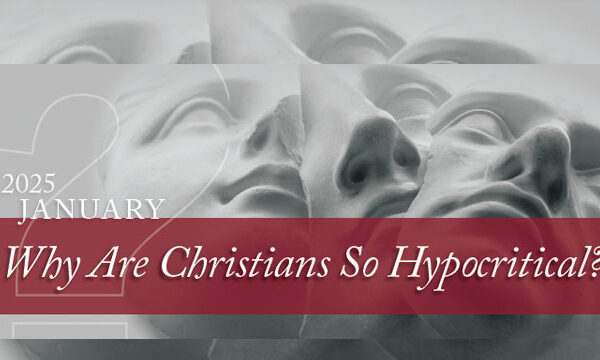Back to series
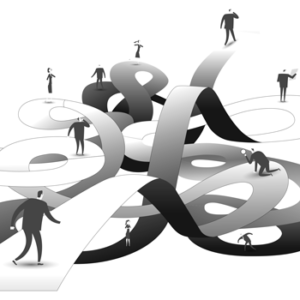
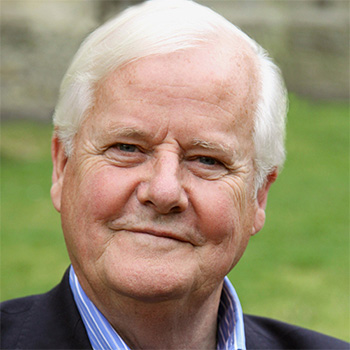

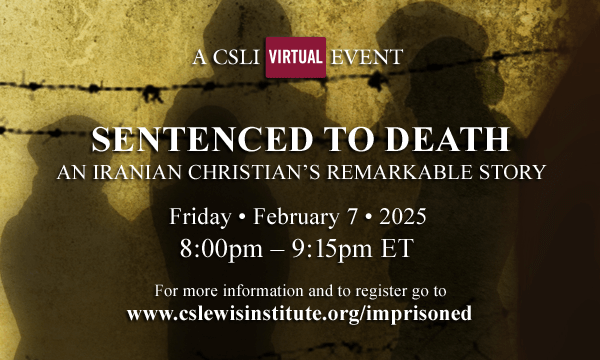
America’s Present Crisis
VOLUME 6 NUMBER 3 ISSUE OF BROADCAST TALKS (PDF)
BROADCAST TALKS presents ideas to cultivate Christ-like thinking and living. Each issue features a transcription of a talk presented at an event of The C. S. Lewis Institute. The following is adapted from a talk given by Os Guinness on November 6, 2020, at a C.S. Lewis Institute livestream event titled Where Is America Headed?
Clearly 2020 has been the year of the black swans, and we’ve just had a photo finish election to match it. I’m a firm admirer of the American experiment, the American republic, and especially its ideas of ordered freedom. But as many of you know, I’m not American, so I’m not partisan here. I try to address concerns with the first principles of freedom and religious freedom and, above all, where they touch the issues of Faith.
I was asked to address two questions: Where are we? and What lies ahead? The first one of course is by far the easier one, and the second one quite impossible. So I can’t answer the second one authoritatively, but I will tell you the things that I’m watching as we move into the future. But first, where are we?
I always consider issues in terms of their background, the context and the historical background. And with America, I like to start with the Revolution and its climax at Yorktown. Tradition, maybe legend, has it that when the British and the Hessian troops were ordered to march out and surrender, they were told to play the ballad The World Turned Upside Down. That music, that song, comes from the English Revolution in 1642. Gerrard Winstanley said, Freedom is the man who turns the world upside down.

Now that idea and most of the ideas of the English Revolution came from –– through the Reformation –– the Bible. And the idea was simple. God creates order, the cosmos, creation. Humans create disorder. So when people come to know God, they become His partners in restoring the world as it should be. So revolution, turning the world upside down, is actually turning it the right way up. Of course, that’s relative to who says so and what they mean. Many people know that in the book of Acts, it was the agitators in Thessalonica who said that Paul and his fellow missionaries were turning the world upside down. Tacitus, the Roman historian, charged the Jews with turning the world upside down. Julian, later called Julian the Apostate, again accused Christians of being the subversives. And you can see that Marx said he was turning Hegel on his head, and Nietzsche quite openly said he was trying to reverse two thousand years of Christian civilization so that people could see that it wasn’t good; it was the slave morality of the Jews, as he put it, and he aimed for what he called a revaluation of all values. In other words, revolution depends on who says so and what they have in mind.
That’s important because the English Revolution was the first of five major revolutions that have shaped our modern world. The English — 1642, the American — 1776, the French — 1789, the Russian — 1917, and the Chinese in 1949, where I had the privilege of being there as a boy.
If you look at those revolutions, the first two were united in that they were both English speaking, but they were different in that the English failed. It was called the lost cause, and the American succeeded and became the winning cause. But they were united by more than the language. They were united that both of them came out through the Reformation from the precedent of what the 17th century called the Hebrew Republic, which came from the Torah and the book of Exodus. And above all, the notion of freedom within the framework of covenant.
The other three revolutions were quite different. The French, the Russian, and the Chinese were antireligious, anti-Christian, and specifically antibiblical. Why does that matter apart from just being a matter of history? If you understand the root, it is the key to America’s present crisis. Everybody acknowledges that America is as deeply divided today, probably as at any time since just before the Civil War. But why? Is it the social media? Is it the coastals against the heart-landers? Is it the nationalists and populists over against the George Soros–style globalists? Partly, in each case. But I would argue the deepest division is between those who understand America and freedom from the perspective of the American Revolution, which was largely, although sadly not fully, biblical, and those who understand America and freedom from the perspective of the heirs of the French Revolution.
Of course many of you know the French Revolution didn’t last long in France; in fact, only ten years. In 1799, Napoleon came and said, the Revolution is over; he was a dictator. But as historians point out, the French Revolution was like a gigantic, Vesuvius-like volcano, and the red-hot lava of revolutionary faith of one sort and another has flowed out across the world ever since in three ways. The first is the least important. It’s what’s called Revolutionary Nationalism in the 19th century, which contributed to the rise of the unification of Italy and Greece and even part of the secular wing of Zionism. Far more important was the second stream, Communism. Obviously planned and designed in the 19th century by Karl Marx and Friedrich Engels but flourishing through the Russian Revolution and through the Chinese Revolution.
That’s the lava flow that most people recognize, Communism, Revolutionary Socialism. But the important point is the third lava stream. I call it Revolutionary Liberationism. And that is what is affecting America today. How?
It goes back to Antonio Gramsci who lived and died as a prisoner in Mussolini’s jails. He was an Italian Marxist, but he tried to figure out why Marx’s prediction never worked out. And he shifted Marxism. His view is now called neo-Marxism or Cultural Marxism, but instead of economic determinism, he switched to what he called Cultural Domination, or his word, hegemony, much used today. His ideas were picked up by the Frankfurt School in the twenties to the sixties. And in the 1960s, the most famous of them in California was Herbert Marcuse who was effectively the godfather of the new Left. In 1967– 68 he and Rudi Dutschke, leader of the Red Brigade in Germany, called for a long march through the Institutions. What did they mean? In 1968, Martin Luther King had been assassinated. Senator Robert Kennedy assassinated. One hundred American cities were ablaze, and yet Marcuse and the radicals knew they would not win in the streets.
What they needed was a long march through the institutions based on the historical precedent of Mao Zedong’s long march in 1934 in China. But the idea was, much more slowly, to win over the schools, colleges, and universities. Win over the press and the media. Win over what they called the culture industry, the world of Hollywood and entertainment, and then you can win the cultural gatekeepers of America, and then eventually win in the streets and, more important, in the halls of Congress.
Now, fifty years later, you can see the extraordinary successes and the inroads they have made, and you only need to think of the cancel culture and the speech codes and all that sort of stuff on the campuses, but it flows from ideas. It flows from what’s called just Theory with a capital T, or Critical Theory, and it’s a form of neo-Marxism or Western Marxism, sometimes even called user-friendly Marxism. But there are some very simple ideas; if you think of postmodernism, political correctness, tribal politics, identity politics, the sexual revolution, and all these various things which have flowed around America in the past fifty years, and much of the Western world, you can see the extraordinary influence of neo-Marxism and this revolutionary liberationism.
Why does it matter? It is a revolution entirely different from the American Revolution. Reinhold Niebuhr used to say that history has two bookends. One is anarchy, or freedom with no order at all, and the other is authoritarianism or order with no freedom at all. As he pointed out, and others like Rabbi Jonathan Sacks point out, you see both of those extremes, those bookends, in the book of Genesis, first eleven chapters. The conditions at the time of the flood, such violence that God regrets making humanity like that. That’s anarchy, freedom without order, leading to terrible violence. But the other extreme is the Tower of Babel, order without freedom, a proto-totalitarianism, and you can see that the call to Abraham, which comes after that in Genesis 12, through his family and then through the nation of the people of Israel is to provide between anarchy and authoritarianism a vision of ordered freedom.
So you can see that the radical left in this neo-Marxist form is extremely subversive of the American experiment. There are differences at all sorts of levels. You could start with their different sources. One goes back to the Bible, the other to the 18th-century Enlightenment — Voltaire, Rousseau, Diderot, and so on. They have different views of humanity. The revolutionary Left is utopian. Man is born free, Rousseau said, and everywhere is in chains. Remove a chain or two and we’ll be happy, free, and fulfilled. Always the Left is utopian. The Bible, realistic. Through the prophets, and earlier, comes the first historical critique of the abuse of power. And you can see that leads to the separation of powers, to checks and balances. And you have, say through John Witherspoon’s teaching, James Madison, Federalist 51, the American experiment has a very realistic view of humanity at its heart, which is why, of course, the Supreme Court, as part of the separation of powers, is so important today and must not be politicized.
You can go on right down the line: freedom, the Constitution, attitudes to religion. They’re all different depending on which of the two revolutions you look at.
Now in the year 2020 the key difference was a very, very important one: How you address wrong. Both the Exodus Revolution and the heirs of the French Revolution admit there is wrong. Flagrant injustice, evil, both sides admit it. The difference comes in how you tackle it, how you address it. If you read critical theory, critical race theory, critical women’s study, critical facts studies, whatever it is, you’d see they have two ideas. First, in their words, hegemony — power, dominance. So you examine the pyramids of power to see who’s the majority, who’s the minority, who’s superior, who’s subordinate, who’s the oppressor, who’s the victim. And then you use the victim, the minority or whatever, in order to be a pawn to fight the status quo and seek to overturn it. Hegemony, dominance.
The other word that comes up again and again in their literature is antagonisms. You look for all the differences between men and women, between classes, between races, between generations, whatever it is, and you use them again through the analysis of power to exploit their differences and, again, overthrow the status quo.
Now there are lots of problems with that. A very simple one is they don’t look at people in terms of individuals but rather as groups and classes, using them as useful idiots to attack the status quo. There’s no real concern for individuals, even some of the people who’ve been terribly mistreated this year have been used because of the violations they experienced. The other problem is you only have power. Your power against power and conflict without end; the only answer, as the Romans put it, is the peace of despotism, when you achieve a power that can put down all rival powers. In other words, if you go back to Thomas Hobbes’s war of all against all, and probably the rise of leviathan, what Hobbes called the mortal god of the state.
Compare that with the biblical way of addressing wrong. Take the prophets. You address truth to power. And you can see that as a primary role of the prophets. Not just great flagrant injustices but the mistreatment of widows and orphans and people in the marketplaces putting their fingers on the scales unjustly, and so on — things that many people would have considered trivial, but they mattered to God because justice matters to God. But you move from truth addressing power to a call for repentance and confession and forgiveness and reconciliation, so enemies can be turned into friend. Now each of those simple words could be unpacked at great length, and you see the incredible difference between the two revolutions. Douglas Murray, who is a self-professed gay and atheist, argues in his great book The Madness of Crowds that the Left has zero mercy. Of course, that’s the wonder not just of mercy but of grace and forgiveness. And, if you think about it, forgiveness is closely tied to freedom. Without forgiveness, you can have only appeasement, buying off the superior power, or abasement, prostrating yourself before the superior power and hoping you won’t catch it in the neck. Think of the difference of forgiveness, the past dismissed and all its claims on you, and the future opened up. Forgiveness and freedom are very closely linked, and the answer of the gospel and the answer of the radical Left is so different; it’s night and day, light and darkness. And you can see that’s just one example of incredible stakes of the present moment.
If the heirs of the French Revolution prevail, and they are very strong at universities and obviously in the streets as we’ve seen this summer and in parts of Congress, then the American Revolution is called into question and finished.
Now you know in the election we’ve had one side saying we want to make America great again and the other side saying we must restore the soul of America. But I point out to you that neither side has said what made America great and what was its soul in the first place. And that is what Lincoln did and that is what needs to be done today.
So where are we? We’re at a kairos moment. We’re at a watershed moment. We’re at our equivalent to the Rubicon for Rome. And we need people like Lincoln at the leadership level and at the citizenship level to understand the crisis and to speak up for what they know is the best of the American experiment.
[In the second half of Dr. Guinness’s talk, he discussed six things he is watching for as we go forward. While not included as part of this Broadcast Talks, the full talk is available on video at the link provided below. Dr. Guinness concluded his talk with the remarks that follow.]
People often ask me, am I an optimist or a pessimist? I always refuse to answer that question, because in America optimism or pessimism is usually either a matter of the market, is it bullish or bearish, or it’s a matter of psychology, is the glass half full or half empty.
Christians should be realists, with hope. So we look reality in the white of the eye, but with confidence in the sovereignty of God and the power of the gospel and the dynamite of the Holy Spirit to move out again today.
So I finish with words that have meant the world to me, and I often share them. God is greater than all. Whether globalization in the grand trends or the chaos in America this evening, God is greater than all. So God may be trusted in all situations. Have faith in God. Have no fear.
[Video of the complete version of this talk is available, Click here. Additional information about the topic of this talk is included in Os Guinness’s books The Magna Carta of Humanity: Sinai’s Revolutionary Faith and the Future of Freedom (Downers Grove, IL: InterVarsity Press, 2021) and Last Call for Liberty: How America’s Genius for Freedom Has Become Its Greatest Threat (Downers Grove, IL: InterVarsity Press, 2018).]
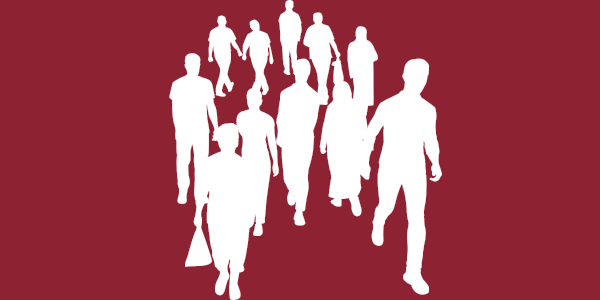

Os Guinness
Author Os Guinness, is the author and editor of more than thirty books, including Fool's Talk, Renaissance, The Global Public Square, A Free People's Suicide, Unspeakable, The Call, Time for Truth, The Case for Civility and his most recent book, Zero Hour America. A frequent speaker and prominent social critic, he has addressed audiences worldwide from the British House of Commons to the U.S. Congress to the St. Petersburg Parliament. Guinness has had a lifelong passion to make sense of our extraordinary modern world and to stand between the worlds of scholarship and ordinary life, helping each to understand the other - particularly when advanced modern life touches on the profound issues of faith. (Photo By Deryck Chan 2013)
Recommended Books by Os Guinness
The Magna Carta of Humanity: Sinai’s Revolutionary Faith and the Future of Freedom (InterVarsity Press, 2021)
In these stormy times, loud voices from all fronts call for revolution and change. But what kind of revolution brings true freedom to both society and the human soul?
Cultural observer Os Guinness explores the nature of revolutionary faith, contrasting between secular revolutions such as the French Revolution and the faith-led revolution of ancient Israel. He argues that the story of Exodus is the highest, richest, and deepest vision for freedom in human history. It serves as the master story of human freedom and provides the greatest sustained critique of the abuse of power. His contrast between “Paris” and “Sinai” offers a framework for discerning between two kinds of revolution and their different views of human nature, equality, and liberty. Drawing on the Hebrew and Christian Scriptures, Guinness develops Exodus as the Magna Carta of humanity, with a constructive vision of a morally responsible society of independent free people who are covenanted to each other and to justice, peace, stability, and the common good of the community. This is the model from the past that charts our path to the future.
“There are two revolutionary faiths bidding to take the world forward,” Guinness writes. “There is no choice facing America and the West that is more urgent and consequential than the choice between Sinai and Paris. Will the coming generation return to faith in God and to humility, or continue to trust in the all sufficiency of Enlightenment reason, punditry, and technocracy? Will its politics be led by principles or by power?” While Guinness cannot predict our ultimate fate, he warns that we must recognize the crisis of our time and debate the issues openly. As individuals and as a people, we must choose between the revolutions, between faith in God and faith in Reason alone, between freedom and despotism, and between life and death.
Last Call for Liberty: How America’s Genius for Freedom Has Become Its Greatest Threat (InterVarsity Press, 2018)
The hour is critical. The American republic is suffering its gravest crisis since the Civil War. Conflicts, hostility, and incivility now threaten to tear the country apart. Competing visions have led to a dangerous moment of cultural self-destruction. This is no longer politics as usual, but an era of political warfare where our enemies are not foreign adversaries, but our fellow citizens.
Yet the roots of the crisis are deeper than many realize. Os Guinness argues that we face a fundamental crisis of freedom, as America’s genius for freedom has become her Achilles’ heel. Our society’s conflicts are rooted in two rival views of freedom, one embodied in “1776” and the ideals of the American Revolution, and the other in “1789” and the ideals of the French Revolution. Once again America has become a house divided, and Americans must make up their minds as to which freedom to follow. Will the constitutional republic be restored or replaced?
This grand treatment of history, civics, and ethics in the Jewish and Christian traditions represents Guinness’s definitive exploration of the prospects for human freedom today. He calls for a national conversation on the nature of freedom and poses key questions for concerned citizens to consider as we face a critical chapter in the American story. He offers readers a checklist by which they can assess the character and consequences of the freedoms they are choosing.
In the tradition of Alexis de Tocqueville, Guinness provides a visitor’s careful observation of the American experiment. Discover here a stirring vision for faithful citizenship and renewed responsibility for not only the nation but also the watching world.
 COPYRIGHT: This publication is published by C.S. Lewis Institute; 8001 Braddock Road, Suite 301; Springfield, VA 22151. Portions of the publication may be reproduced for noncommercial, local church or ministry use without prior permission. Electronic copies of the PDF files may be duplicated and transmitted via e-mail for personal and church use. Articles may not be modified without prior written permission of the Institute. For questions, contact the Institute: 703.914.5602 or email us.
COPYRIGHT: This publication is published by C.S. Lewis Institute; 8001 Braddock Road, Suite 301; Springfield, VA 22151. Portions of the publication may be reproduced for noncommercial, local church or ministry use without prior permission. Electronic copies of the PDF files may be duplicated and transmitted via e-mail for personal and church use. Articles may not be modified without prior written permission of the Institute. For questions, contact the Institute: 703.914.5602 or email us.
-
Recent Podcasts
From Anti-Christian to Pastor – Brian Smith’s Story
by Jana Harmon, Brian Smith on January 17, 2025Brian grew up in a small Georgia town...Read More
-
Time With God
by Aimee Riegert, J.I. Packer on January 10, 2025
-
Faith and Reason – Henare Whaanga’s Story
by Henare Whaanga, Jana Harmon on January 3, 2025
-
Recent Publications
Why Are Christians So Hypocritical?
by Christopher L. Reese on January 1, 2025Oh, the hypocrisy of those Christians—they talk so...Read More
-
How Artists and Their Art Can Point Us to the Creator
by Russ Ramsey on December 2, 2024
-
What about Jesus’s Childhood?
by Jim Phillips on December 1, 2024
0
All Booked
0.00
All Booked
0.00
All Booked
23931
GLOBAL EVENT: Sentenced to Death with Maryam Rostampour-Keller, 8:00PM ET
https://www.cslewisinstitute.org/?event=global-event-sentenced-to-death-with-maryam-rostampour-keller-800pm-et&event_date=2025-02-07®=1
https://www.paypal.com/cgi-bin/webscr
2025-02-07

Next coming event
Days
Hours
Minutes
Seconds
GLOBAL EVENT: Sentenced to Death with Maryam Rostampour-Keller, 8:00PM ET
On February 7, 2025 at 8:00 pmCategories
Speakers
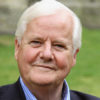
Os Guinness
Author
Team Members

Os Guinness
AuthorOs Guinness, is the author and editor of more than thirty books, including Fool's Talk, Renaissance, The Global Public Square, A Free People's Suicide, Unspeakable, The Call, Time for Truth, The Case for Civility and his most recent book, Zero Hour America. A frequent speaker and prominent social critic, he has addressed audiences worldwide from the British House of Commons to the U.S. Congress to the St. Petersburg Parliament. Guinness has had a lifelong passion to make sense of our extraordinary modern world and to stand between the worlds of scholarship and ordinary life, helping each to understand the other - particularly when advanced modern life touches on the profound issues of faith. (Photo By Deryck Chan 2013)



